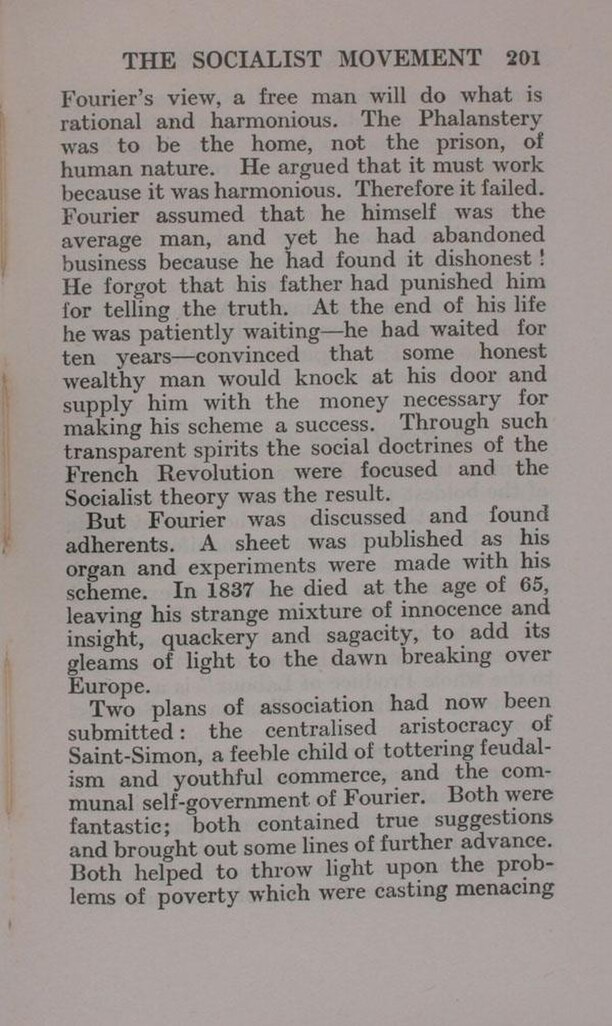Fourier's view, a free man will do what is rational and harmonious. The Phalanstery was to be the home, not the prison, of human nature. He argued that it must work because it was harmonious. Therefore it failed. Fourier assumed that he himself was the average man, and yet he had abandoned business because he had found it dishonest! He forgot that his father had punished him for telling the truth. At the end of his life he was patiently waiting—he had waited for ten years—convinced that some honest wealthy man would knock at his door and supply him with the money necessary for making his scheme a success. Through such transparent spirits the social doctrines of the French Revolution were focused and the Socialist theory was the result.
But Fourier was discussed and found adherents. A sheet was published as his organ and experiments were made with his scheme. In 1837 he died at the age of 65, leaving his strange mixture of innocence and insight, quackery and sagacity, to add its gleams of light to the dawn breaking over Europe.
Two plans of association had now been submitted: the centralised aristocracy of Saint-Simon, a feeble child of tottering feudalism and youthful commerce, and the communal self-government of Fourier. Both were fantastic; both contained true suggestions and brought out some lines of further advance. Both helped to throw light upon the problems of poverty which were casting menacing
